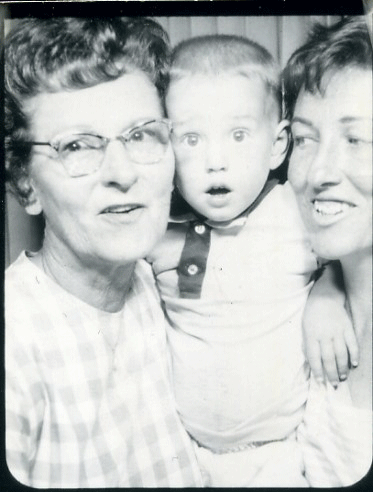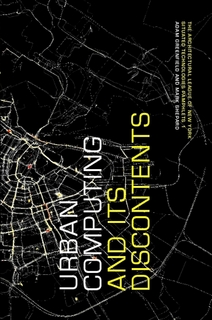Things tagged sociology:
Britain From Above
Britain looks very different from the skies. From a bird’s eye view of the nation, its workings, cities, landscapes and peoples are revealed and re-discovered in new and extraordinary ways.
Particular nuggets I have found so far include: The Great Migration in the Sky, Taxis in London and Ships Crossing the Channel.
Via 5 Best Data Visualization Projects of the Year at Flowing Data via Beyond the Beyond.
Moving Pictures
Posted at Square America:
Square America is a site dedicated to preserving and displaying vintage snapshots from the first 3/4s of the 20th Century. Not only do these photographs contain a wealth of primary source information on how life was lived they also constitute a shadow history of photography, one too often ignored by museums and art galleries. Or at least that’s what I tell people- more accurately, the site is a catalog of my obsession with vintage photographs.
The evolution of homosexuality: Gender bending
The evidence suggests that homosexual behaviour is partly genetic. Studies of identical twins, for example, show that if one of a pair (regardless of sex) is homosexual, the other has a 50% chance of being so, too. That observation, though, raises a worrying evolutionary question: how could a trait so at odds with reproductive success survive the ruthless imperatives of natural selection?Various answers have been suggested. However, they all boil down to the idea that the relatives of those who are gay gain some advantage that allows genes predisposing people to homosexual behaviour to be passed on collaterally.One proposal is that the help provided by maiden aunts and bachelor uncles in caring and providing for the children of their brothers and sisters might suffice. That seems unlikely to be the whole story (the amount of help needed to compensate would be huge), though it might be a contributory factor.
The other idea, since there is evidence that male homosexuals, at least, are more likely than average to come from large families, is that the genes for gayness bring reproductive advantage to those who have them but are not actually gay themselves. Originally, the thought was that whichever genes make men gay might make women more fecund, and possibly vice versa.
Brendan Zietsch of the Queensland Institute of Medical Research in Brisbane, Australia, and his colleagues have, however, come up with a twist on this idea. In a paper to be published soon in Evolution and Human Behavior, they suggest the advantage accrues not to relatives of the opposite sex, but to those of the same one. They think that genes which cause men to be more feminine in appearance, outlook and behaviour and those that make women more masculine in those attributes, confer reproductive advantages as long as they do not push the individual possessing them all the way to homosexuality.
Click through for more at at The Economist.
Sha Na Na and the Invention of the Fifties
Contemporary scholars of American cultural history have begun writing that Sha Na Na’s greatest achievement was the invention of a new American era: the “Fifties.” The whole notion of how artists can change the way a historical era is viewed, and relatively quickly, is interesting on its own.
Via Arts & Letters Daily.
Out of Gas
A collection of photos of old gas stations from Camilo José Vergara’s amazing Invincible Cities project, which if you haven’t seen, you need to check out.
Suicide on the Tube
Eben Harrell in Time:
At the station before Queensway, Lancaster Gate, he had broken from protocol to announce to the pranksters holding up the doors not the scripted "Mind the closing doors" but the more personal "please stop doing that or you will injure yourselves and end up in hospital." The statement had a slight, "I-know-better" air, but it was also improvised, and showed concern for passengers' well-being. I remembered this minor act of kindness as our driver addressed us on the intercom to announce the evacuation. He kept repeating: "This train is not going anywhere for some time. We have a man under the train, so the train is not going anywhere for some time." It became a sort of mantra: "I repeat: this train is not going anywhere for some time."
Via Arts & Letters Daily.
Shake It Like a Metaphorical Picture
Sometime next year, Polaroid will stop producing instant film. There have been lots of people jumping in to help save the format, and others writing some striking eulogies, as the rest of us start mourning the oncoming loss. But one thing I can’t quite shake is what Polaroid represents to me, something that will likely be on its way out the door too: the visual metaphor of a photograph.
Via Gruber at Daring Fireball.
Why I had to lie to my dying mother
American writer Susan Sontag was terrified of death. She beat cancer in the 1970s, and again in the 1990s, but third time around she wasn't so lucky. In a tender account of her final illness, her son David Rieff recalls how he colluded with his mother's fantasy that she wasn't dying - and what this ultimately cost him after she had gone.
Via Arts & Letters Daily.
Gin, Television, and Social Surplus
Clay Shirky:
Starting with the Second World War a whole series of things happened--rising GDP per capita, rising educational attainment, rising life expectancy and, critically, a rising number of people who were working five-day work weeks. For the first time, society forced onto an enormous number of its citizens the requirement to manage something they had never had to manage before--free time.And what did we do with that free time? Well, mostly we spent it watching TV
Via Daring Fireball and Warren Ellis.
In the Garden with the Guru
Bob Rodgers essay in Literary Review of Canada:
A six-foot-high hedge separated me from the garden next door but not from its voices. It was my first Sunday morning in the house I sublet on Wells Hill Avenue by Casa Loma in Toronto. I couldn’t make out what was being said but one of the voices sounded familiar. I moved closer and parted the hedge just enough for a covert glimpse of my new neighbours. A middle-aged man was lying on his back in a hammock with a book held up vertically above his head as he read aloud. Next to him a young man sat in a deck chair with a book on his lap. The young man said: “Vico’s cycles.” The older man said: “Vicious Circles.” “Viscous cyclones,“ said the young man. I was awestruck. My God, I thought, I must be the only person in the world at this moment listening to what looks like a tag team reading Finnegans Wake. Later I learned I had been witness to a regular occurrence. Eric McLuhan and his father, Marshall, were reading at each other.
One Hand Jason
Interview at BME with "One Hand Jason":
I’m one of those body-integrity-disorder (BIID) dudes. As long as I can remember, having two hands was a defect in my body — something that was not meant to be. For me philosophically, it’s totally different from body mods, which I also have. I don’t think I had any choice. My right hand just didn’t belong to my body.
Via Warren Ellis.
Learning to Lie
Po Bronson at New York Magazine:
It starts very young. Indeed, bright kids—those who do better on other academic indicators—are able to start lying at 2 or 3. “Lying is related to intelligence,” explains Dr. Victoria Talwar, an assistant professor at Montreal’s McGill University and a leading expert on children’s lying behavior.
Although we think of truthfulness as a young child’s paramount virtue, it turns out that lying is the more advanced skill. A child who is going to lie must recognize the truth, intellectually conceive of an alternate reality, and be able to convincingly sell that new reality to someone else. Therefore, lying demands both advanced cognitive development and social skills that honesty simply doesn’t require. “It’s a developmental milestone,” Talwar has concluded.
The most disturbing reason children lie is that parents teach them to. According to Talwar, they learn it from us. “We don’t explicitly tell them to lie, but they see us do it. They see us tell the telemarketer, ‘I’m just a guest here.’ They see us boast and lie to smooth social relationships.”
Consider how we expect a child to act when he opens a gift he doesn’t like. We instruct him to swallow all his honest reactions and put on a polite smile. Talwar runs an experiment where children play games to win a present, but when they finally receive the present, it’s a lousy bar of soap. After giving the kids a moment to overcome the shock, a researcher asks them how they like it. About a quarter of preschoolers can lie that they like the gift—by elementary school, about half.
Via Arts & Letters Daily.
Back by popular demand: the Minimal Compact
Ever since v-2.org went down for the count, I get a fair number of requests to repost this minifesto on “open-source constitutions for post-national entitites,” from 2003. It’s goofy, it’s naïve, it’s grandiose and pompous…and I present it to you now exactly as I wrote it then. Enjoy!
Bruce Sterling: State of the World, 2008
Bruce does his annual "state of the world" conversation with Jon Lebkowsky and others on The WELL.
Repressed Memory
Ashley Pettus in Harvard Magazine
In a recent study, professor of psychiatry Harrison Pope, co-director of the Biological Psychiatry Lab at Harvard-affiliated McLean Hospital, put “repressed memory” to the test of time. He reasoned that if dissociative amnesia were an innate capability of the brain—akin to depression, hallucinations, anxiety, and dementia—it would appear in written works throughout history. In collaboration with associate professor of psychiatry James Hudson, Michael Parker, a professor of English at the U.S. Naval Academy, Michael Poliakoff, director of education programs at the National Endowment for the Humanities, and research assistant Matthew Boynes, Pope set out to find the earliest recorded example of a “repressed memory.”
Via Arts & Letters Daily.
Rich Kid Syndrome
Jennifer Senior in New York Magazine
In 2000, there were 7,000 American households worth $100 million or more; in 2003, there were 10,000; and today, though the data isn’t yet in, Boston College estimates that the number will be 14,000 or 15,000, or double what it was at the beginning of the millennium. If you pare back the standard from eight zeroes to seven, the numbers are even more surprising: Boston College has calculated that in 2004, the last time the Fed provided data, there were 649,000 American households worth $10 million or more, a nearly 300 percent jump since 1992. […]
At some point, the offspring of this charmed class will be the stewards of the dollhouse nation their parents have created—and, more important, the caretakers of its treasury. Already, Boston College projects that inheritances received between 2003 and 2007 will be 50 percent larger than those received between 1998 and 2002, and that’s after adjusting for inflation.
Sayonara, salaryman
Posted to The Economist.
The conclusion:
Nobu, the young salaryman, likes his job but plans to start his own business one day. The older men in his office struck compromises that he is not prepared to endure. “After 1945, we were left with nothing, so we had to work together, with the same goal and as one team. We were a success, and Japan grew,” he says. “But this organisation doesn’t work any more. It has stayed the same for too long. The system has rusted.”
Urban Computing and its Discontents
Since the late 1980s, computer scientists and engineers have been researching ways of embedding computational intelligence into the built environment. Looking beyond the model of personal computing, which placed the computer in the foreground of our attention, “ubiquitous” computing takes into account the social dimension of human environments and allows computers themselves to vanish into the background. No longer solely virtual, human interaction with and through computers becomes socially integrated and spatially contingent, as everyday objects and spaces are linked through networked computing.
Conversation between Adam Greenfield and Mark Shepard.
Go read, this is important.
Via Bruce Sterling at Beyond the Beyond.
Where Are Islam's Silent Moderates?
Ayaan Hirsi Ali in the NYT:
It is often said that Islam has been "hijacked" by a small extremist group of radical fundamentalists. The vast majority of Muslims are said to be moderates.
But where are the moderates? Where are the Muslim voices raised over the terrible injustice of incidents like these? How many Muslims are willing to stand up and say, in the case of the girl from Qatif, that this manner of justice is appalling, brutal and bigoted - and that no matter who said it was the right thing to do, and how long ago it was said, this should no longer be done?
Usually, Muslim groups like the Organization of the Islamic Conference are quick to defend any affront to the image of Islam. The organization, which represents 57 Muslim states, sent four ambassadors to the leader of my political party in the Netherlands asking him to expel me from Parliament after I gave a newspaper interview in 2003 noting that by Western standards some of the Prophet Muhammad's behavior would be unconscionable. A few years later, Muslim ambassadors to Denmark protested the cartoons of Muhammad and demanded that their perpetrators be prosecuted.
But while the incidents in Saudi Arabia, Sudan and India have done more to damage the image of Islamic justice than a dozen cartoons depicting the Prophet Muhammad, the organizations that lined up to protest the hideous Danish offense to Islam are quiet now. . . .
When a "moderate" Muslim's sense of compassion and conscience collides with matters prescribed by Allah, he should choose compassion. Unless that happens much more widely, a moderate Islam will remain wishful thinking.
Via Jonathan Adler at Volokh.
The best "Don't leave me" line yet:
Forget "Think of the Children!", try "Think of the Environment!"
Divorce is not just a family matter. It exacts a serious toll on the environment by boosting the energy and water consumption of those who used to live together, according to a study by two Michigan State University researchers.
The analysis found that cohabiting couples and families around the globe use resources more efficiently than households that have split up. The researchers calculated that in 2005, divorced American households used between 42 and 61 percent more resources per person than before they separated, spending 46 percent more per person on electricity and 56 percent more on water.
But be careful, as your partner may just reply "I've found someone new":
"There's strong evidence, which emerges clearly in this paper, that merging what otherwise would be separate households will reduce energy and other resource needs," Cavanagh wrote in an e-mail. "The best advice to those who are miserable together is not, however, to avoid divorce for the sake of the environment, but to find someone else as quickly as possible."
Via Jonathan Adler at Volokh.


